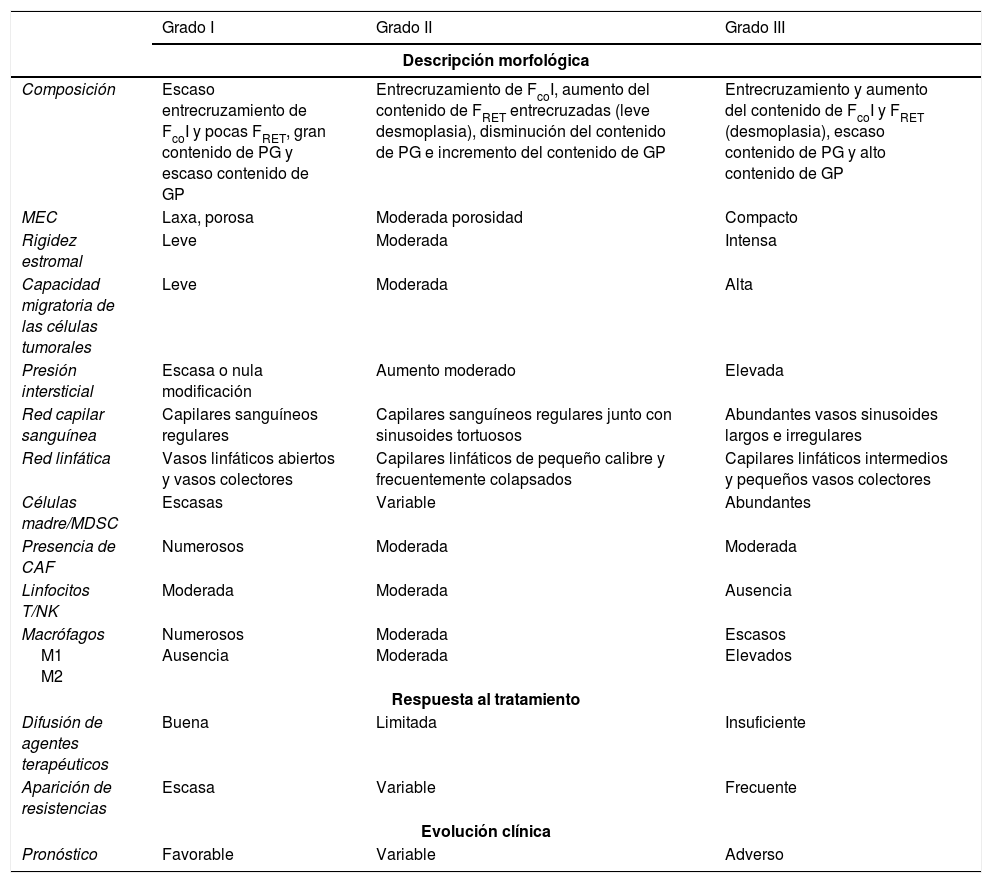El grupo de enfermedades al que nos referimos como «cáncer» comparte una estructura biológica conformada por un ecosistema complejo, donde se han alterado las relaciones intercelulares, los campos de información, el desarrollo y la función tisular. Más allá de las alteraciones genéticas de la célula tumoral, la demostración de un ecosistema alterado, con sus interconexiones a nivel sistémico, abre una nueva perspectiva de la biología y del comportamiento del cáncer. Diversas facetas del tumor, su morfología, clasificación, agresividad clínica, pronóstico y respuesta al tratamiento aparecen ahora bajo una visión integral que ofrece un nuevo horizonte de estudio, investigación y manejo clínico.
La Teoría de la Mutación Somática en cáncer, vigente desde hace más de 100 años, se ve hoy completada por el estudio del microambiente tumoral, la matriz extracelular, las células estromales, la respuesta inmune, la inervación, la nutrición, la mitocondria, el metabolismo, el fluido intersticial, las propiedades mecánicas y electromagnéticas del tejido, y muchas otras áreas de conocimiento emergente, que abren la puerta a un ejercicio de reprogramación del fenotipo tumoral a través de la modificación de las claves ofrecidas por este nuevo paradigma. Su reconocimiento permite pasar de considerar el proceso oncológico como un problema celular a una alteración supracelular basada en la desorganización de los tejidos, inmersos en las relaciones del sistema complejo que conforma un ser vivo.
The group of diseases that we call cancer share a biological structure formed by a complex ecosystem, with altered intercellular communication, information fields, development and tissue function. Beyond the genetic alterations of the tumor cell, the demonstration of an altered ecosystem, with interconnections at systemic levels, opens up a new perspective on cancer biology and behavior. Different tumor facets, such as morphology, classification, clinical aggressiveness, prognosis and response to treatment now appear under a comprehensive vision that offers a new horizon of study, research and clinical management.
The Somatic Mutation Theory in cancer, in force for more than one hundred years, is now completed by the study of the tumor microenvironment, the extracellular matrix, the stromal cells, the immune response, the innervation, the nutrition, the mitochondria, the metabolism, the interstitial fluid, the mechanical and electromagnetic properties of the tissue and many other areas of emerging knowledge; thus opening the door to a reprogramming exercise of the tumor phenotype through the modification of the keys offered by this new paradigm. Its recognition makes it possible to go from considering the oncological process as a cellular problem to a supracellular alteration based on the disorganization of tissues, immersed in the relationships of the complex system of the living being.
Artículo
Comprando el artículo el PDF del mismo podrá ser descargado
Precio 19,34 €
Comprar ahora









